33 Remarkable Things That Actually Happened in the Year 1984
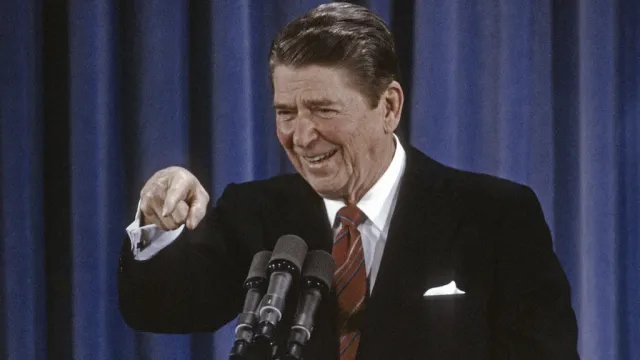
On June 8, 1949, George Orwell’s tour de force, 1984, hit shelves. The literary rebellion against Big Brother ranks among the most influential works of science-fiction ever. It’s been adapted into plays, ballets, operas, TV shows, and films (one of which is critically acclaimed). It also made an indelible mark on our lexicon, ushering in such words and phrases as “Orwellian,” “thoughtcrime,” “Newspeak,” and “memory hole.”
More recently, 1984 has experienced a bit of a resurgence, popping to the top of Amazon sales charts twice in recent years: once in 2013, after news of an NSA surveillance scandal broke, and again in 2017, when the phrase “alternative facts” was first uttered on national television. At the time of the latter, esteemed New York Times book critic Michiko Kakutani called Orwell’s fictional dystopia “all too familiar.”
Clearly, it took a bit longer for Orwell’s predictions about the future to become reality (or close enough). But 1984 was still a banner year in history. Sure, it may have been less dystopian than Orwell’s initial vision—but that doesn’t mean it was any less exciting. And these landmark events that actually happened in 1984 are proof.
1
Apple aired the “1984” Macintosh commercial.
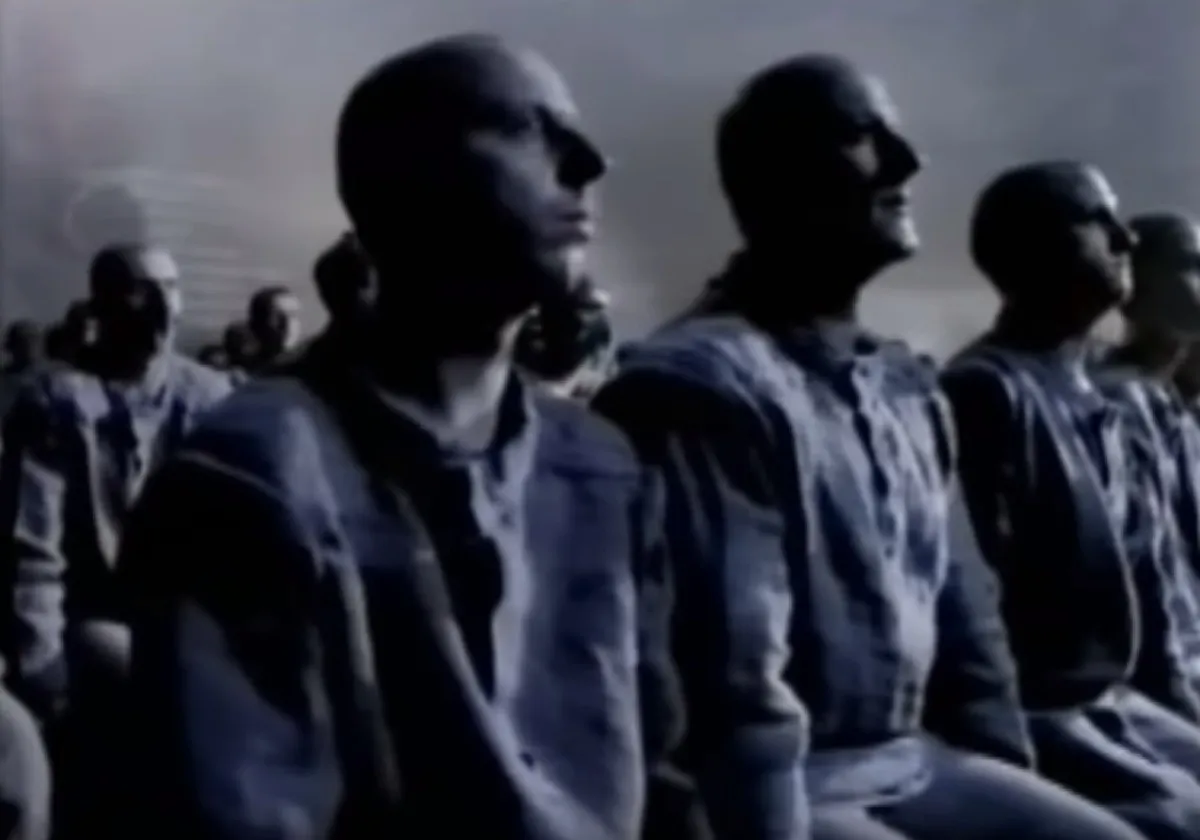
There are few things more quintessentially “1984” than Apple Computer’s instantly iconic commercial. Inspired by Orwell’s 1984, the Super Bowl ad changed the face of advertising overnight. Not only was the production value through the roof—the dystopia-tinged spot was directed by Ridley Scott, fresh off of Blade Runner—it was also, at $900,000 ($2.2 million, adjusted for inflation), one of the most expensive commercials ever. It single-handedly created an entire industry-within-an-industry: Super Bowl commercials. Oh, and it also introduced the world to the Macintosh.
2
Richard Branson revitalized air travel.
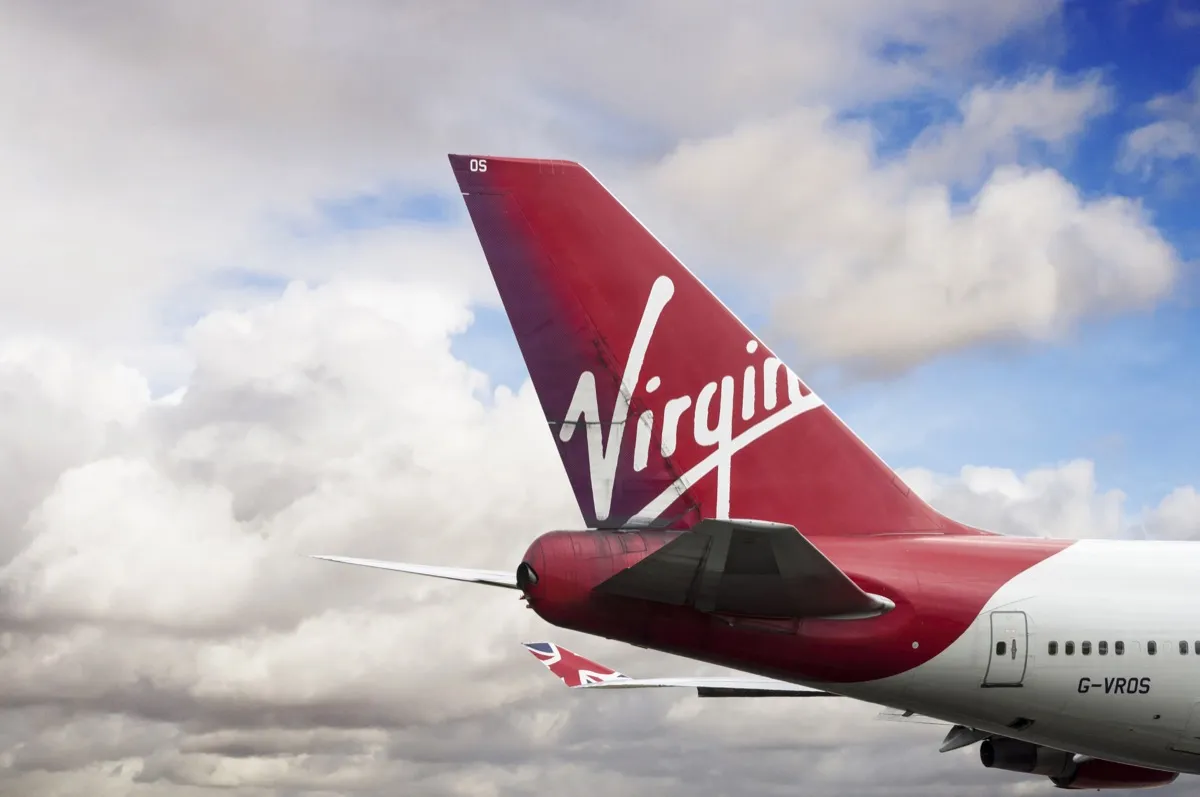
Richard Branson had already earned plenty of cultural cache with the success of Virgin Records—signing everyone from the Sex Pistols to Peter Gabriel to Paula Abdul. But in 1984, he would raise his profile far higher with the formation of Virgin Atlantic Airways. Its maiden flight, from Gatwick Airport in London to Newark Liberty International Airport in New Jersey, would begin a successful run that made it a significant competitor in the airline market for just over 30 years. (Alaska Airlines purchased it in 2016.)
3
Purple Rain landed with a splash.
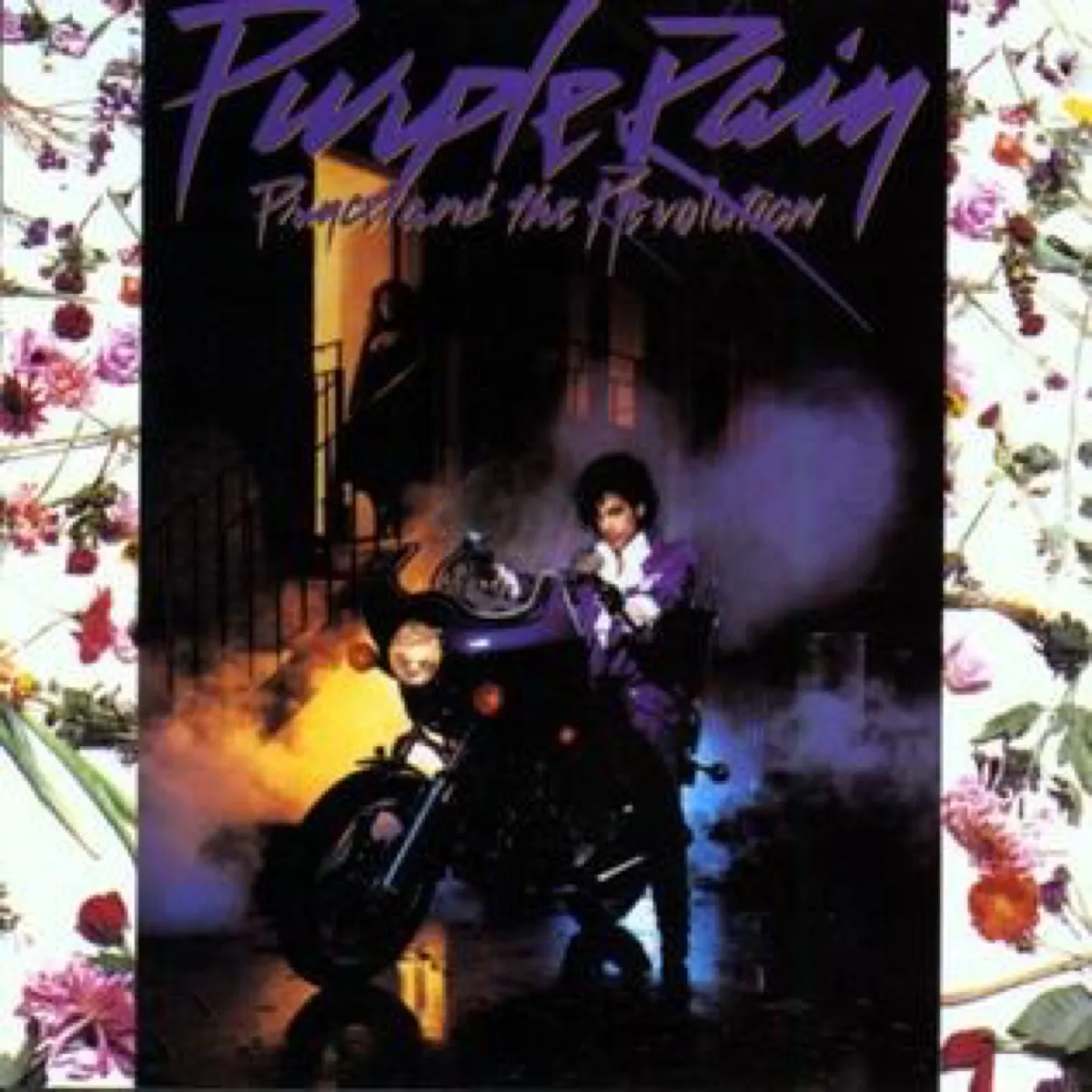
Prince owned the summer of 1984, thanks to the release of both the film and album Purple Rain, which formally introduced the world to his backing band, The Revolution. The music was more complex than what Prince had been doing up to that point, and the film was a commercial hit. But the lead single, “When Doves Cry,” arguably had the most lasting impact; Rolling Stone would eventually place it among the top 100 on its list of the 500 Greatest Songs of All Time.
4
The Soviet Union boycotted the Summer Olympics.
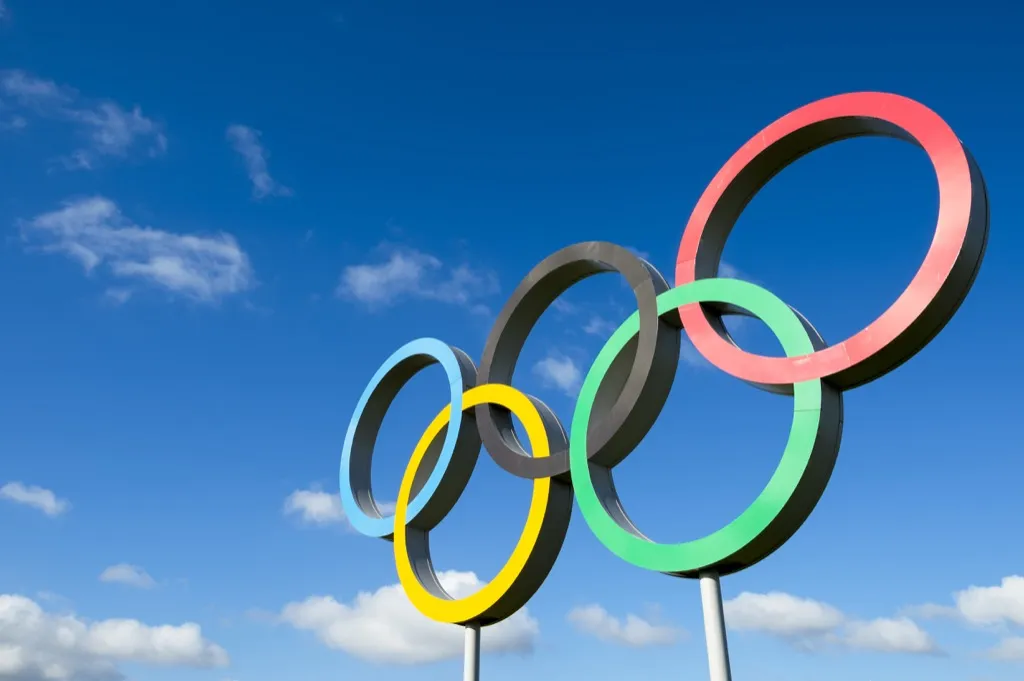
With the Cold War raging, the Olympics became a high-profile opportunity for the rival countries to put pressure on one another. In 1980, the United States led a boycott of the Moscow Summer Olympics. So, in 1984, when the event moved to Los Angeles, the Soviet Union returned the favor.
Fourteen Eastern Bloc countries and allies (including Cuba, Poland, and East Germany) refused to compete in the 1984 Summer Olympic Games. In a statement about the decision, the USSR cited the commercialization of the event, security concerns, and the “chauvinistic sentiments and anti-Soviet hysteria being whipped up in the United States.”
Thanks to the lack of competition from so many prominent nations, the United States scored a record 83 Olympic gold medals.
5
The longest game in MLB history went down.

In May 1984, another major sports record was shattered: The Chicago White Sox and Milwaukee Brewers played the longest game in Major League Baseball history. Lasting eight hours and six minutes over 25 innings, the game had to be spread across two days, until the Brewers eventually pulled out a 7–6 win, thanks to a home run from Harold Baines.
6
A woman ran on a major political party’s presidential ticket for the first time.
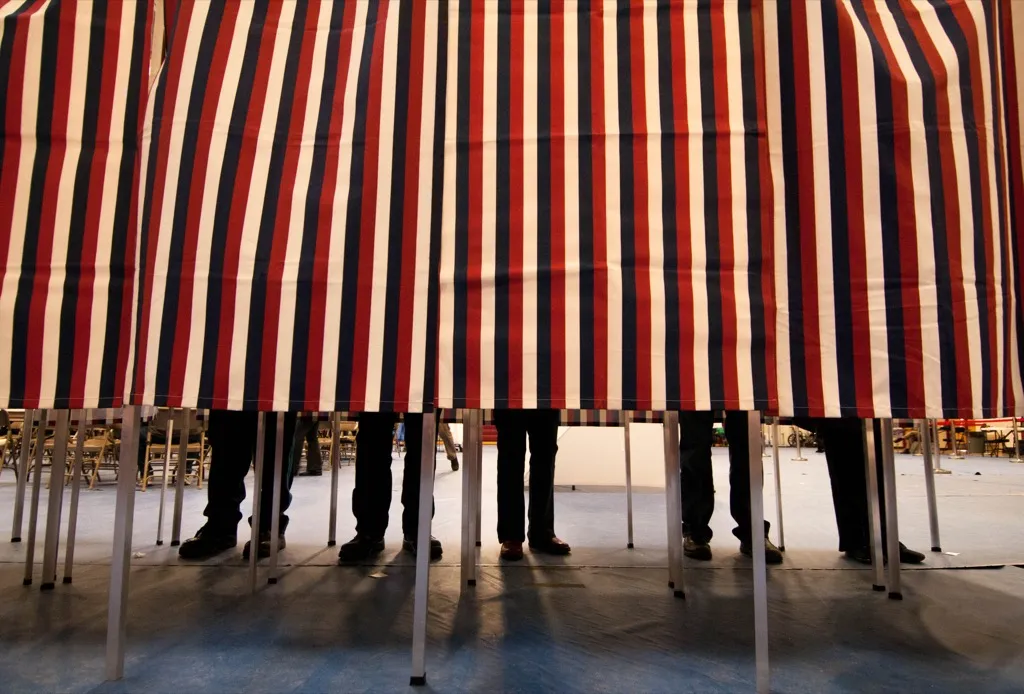
During the 1984 election, a woman ran on a major political party’s presidential ticket for the first time in history. Congresswoman Geraldine Ferraro joined former Democrat Walter Mondale as he went up against Republican incumbent Ronald Reagan. Mondale was behind throughout most of the campaign and hoped the choice of Ferraro for vice presidential candidate would not only boost enthusiasm from women for his candidacy, but peel away voters from Reagan.
7
Reagan walloped Mondale.
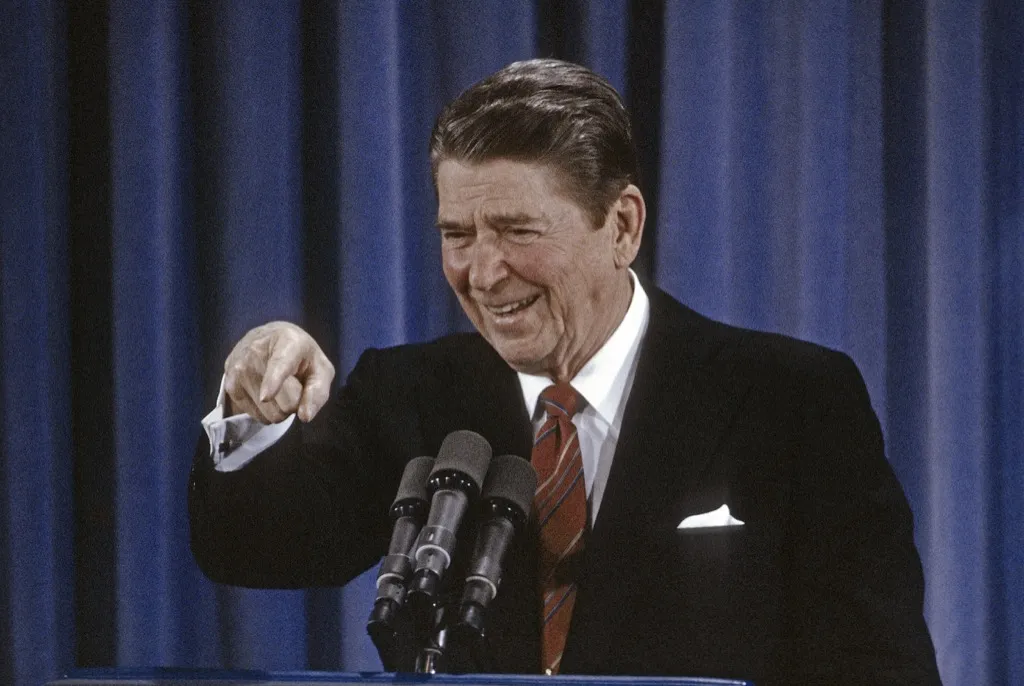
Unfortunately for the Democratic ticket, the addition of Ferraro was not enough to turn the tide in the election. Mondale would not just get beaten by Reagan in November 1984, he’d be absolutely crushed. Reagan won 58.8 percent of the popular vote and 49 out of 50 states (all but Mondale’s home state of Minnesota). It netted him a record-breaking 525 electoral votes, which remains the most ever won in a presidential election. The month after the election, when asked what he wanted for Christmas, Reagan joked, “Well, Minnesota would have been nice.”
8
HIV was identified.
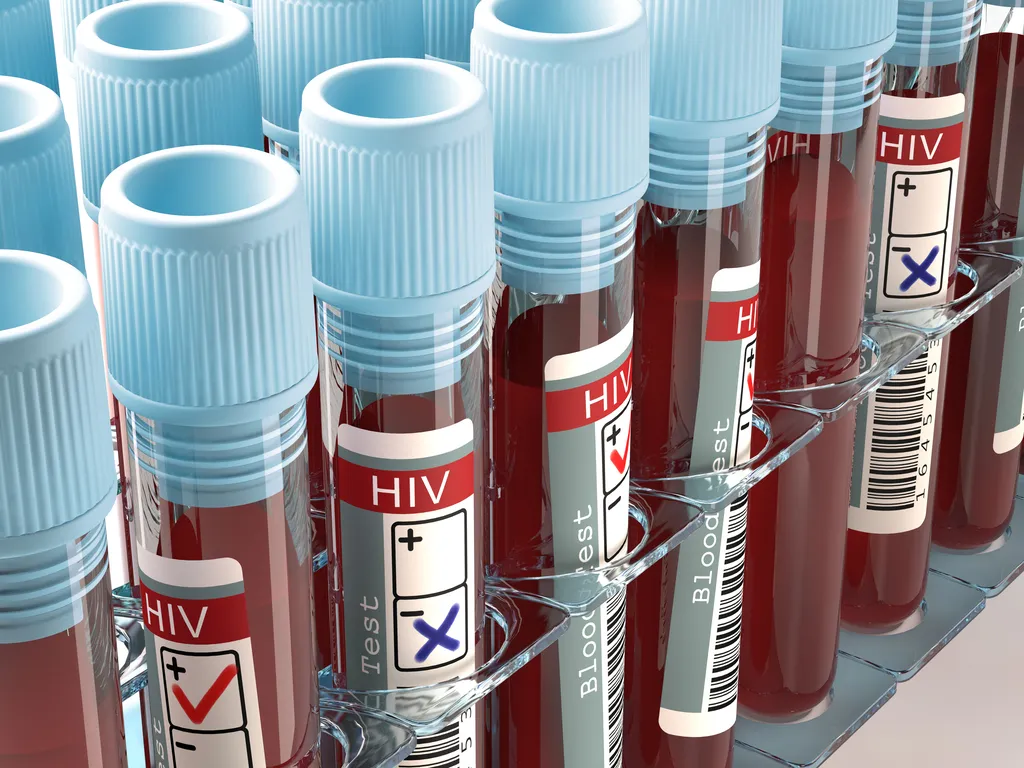
Well into the 1980s, much about the AIDS virus, which was killing thousands of people, remained a terrifying and tragic mystery. This finally began to change in 1984 when U.S. Department of Health and Human Services Secretary Margaret Heckler announced that the National Cancer Institute’s Dr. Robert Gallo and his colleagues found the cause of AIDS: a retrovirus they labeled HTLV-III, which would eventually be renamed HIV (standing for human immunodeficiency virus).
9
Wendy’s wondered, “Where’s the Beef?”
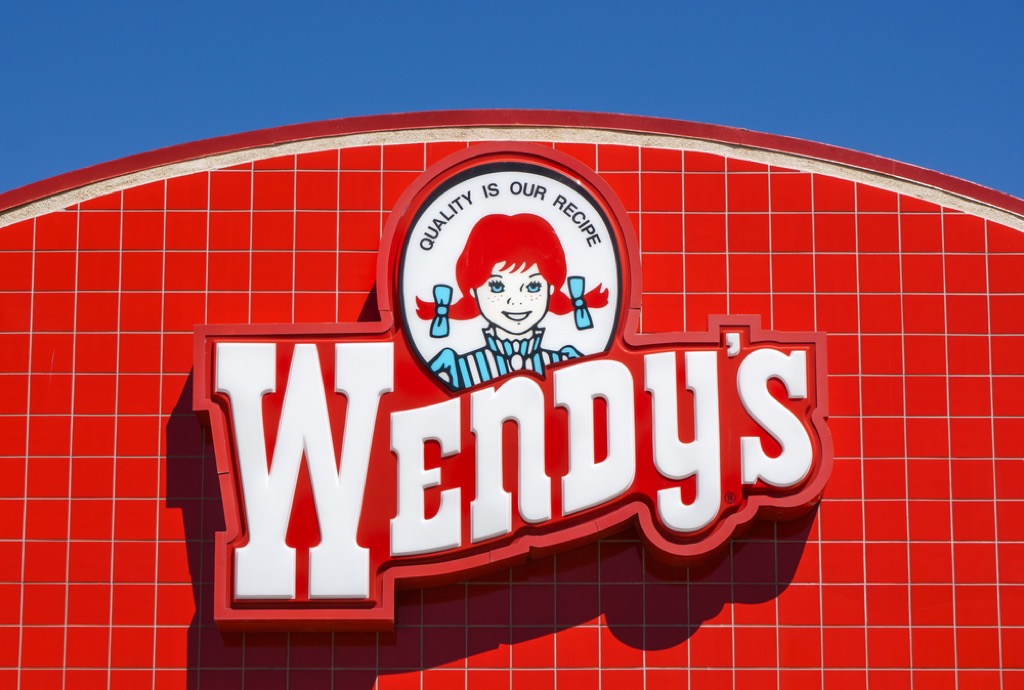
Fast-food company Wendy’s launched its TV ad titled “Fluffy Bun” in 1984, but it soon earned another nickname. The ad featured three older women receiving a burger with a huge bun and little meat, to which actress Clara Peller asks, “Where’s the beef?” The director had instructed Peller to say “Where is all the beef?” but because of her emphysema, she shortened it, according to Ad Age. And thank goodness she did: The commercials earned tons of attention, and the phrase entered popular culture, even inspiring a (not-quite-hit) song.
10
Michael Jackson’s hair caught on fire.
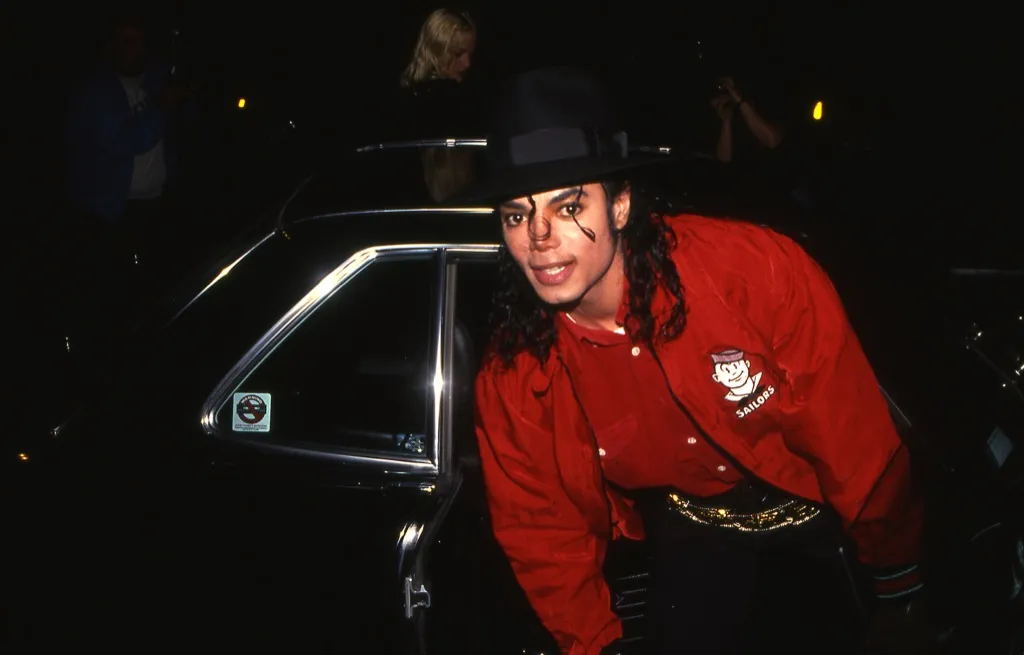
His legacy is complicated, to put it lightly, but nobody was more famous in 1984 than Michael Jackson. That made January 27th a major moment in pop culture, as reports emerged that, while filming the sixth take of a pyrotechnical shot for a Pepsi commercial, sparks landed on Jackson’s heavily gelled hair and set it aflame. The incident reportedly left severe burns on his scalp, face, and body.
Though both Jackson and Pepsi kept matters quiet, the tragedy garnered added attention following the pop star’s death—the episode may have begun his regular use of and dependence on painkillers.
11
Tetris dropped its first block.

For a certain subset of gamers, it might seem like Tetris has always been there. But it was first released in June 6, 1984, nearly 35 years ago. The block-building puzzle game—designed by Alexey Leonidovich Pajitnov, an artificial intelligence researcher—was one of the earliest hit video games. Tetris was first available on Commodore 64 and IBM PC, but quickly appeared on, well, nearly every console you can think of.
And it shows no signs of slowing down: In 2019, Tetris 99—a competitive online version of the game, played against 99 other people—launched on the Nintendo Switch.
12
Hour-long infomercials became the norm.

Today, we take these direct-response commercials that prominently feature a toll-free number and a pitchman—selling everything from cleaning fluid to get-rich-quick schemes—for granted. But this form of advertising couldn’t even exist until 1984, when the Federal Communications Commission eliminated a regulation that banned program-length advertisements. TV at 3:00 a.m. would never be the same again.
13
Crack cocaine showed up in Los Angeles.
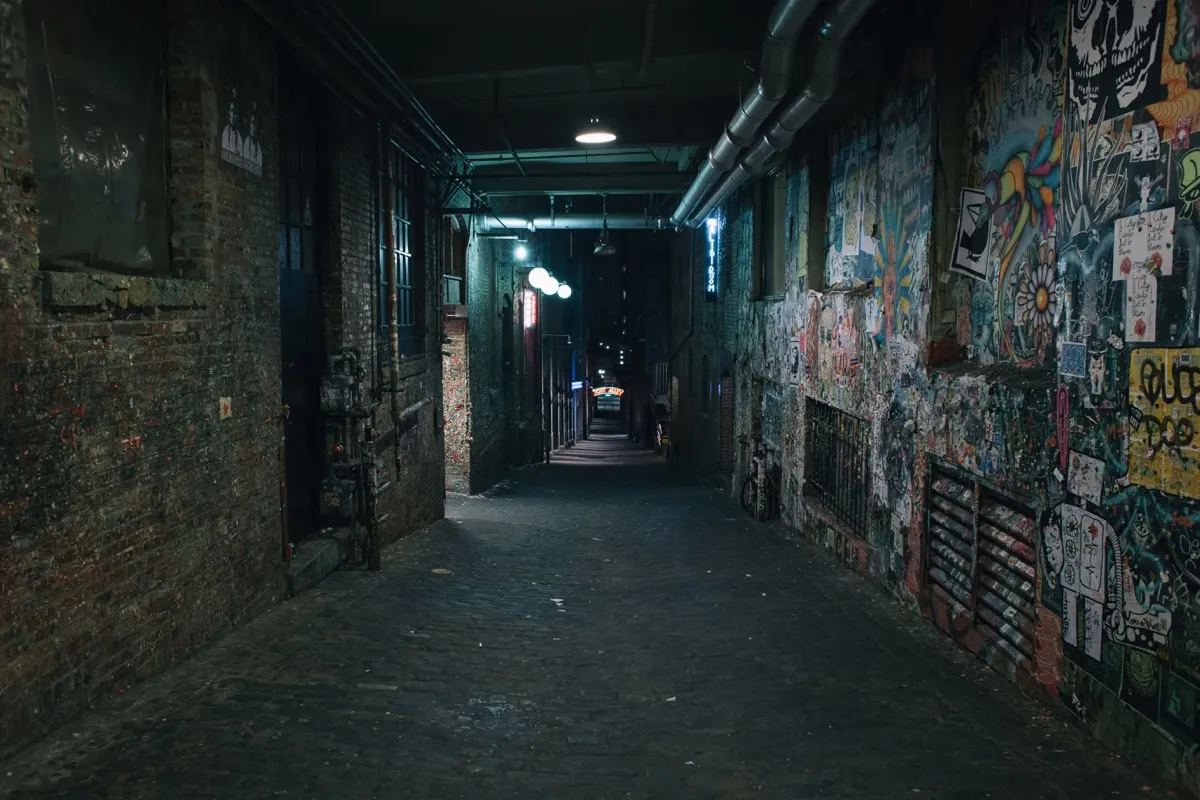
Crack, a less-expensive and smokable form of cocaine, first showed up in Los Angeles in 1984 and quickly spread to major cities throughout the United States; the word “crack” first appeared in The New York Times on November 17, 1985. And within a few years, it would balloon into a full-blown epidemic.
14
Kevin Bacon danced into America’s hearts.
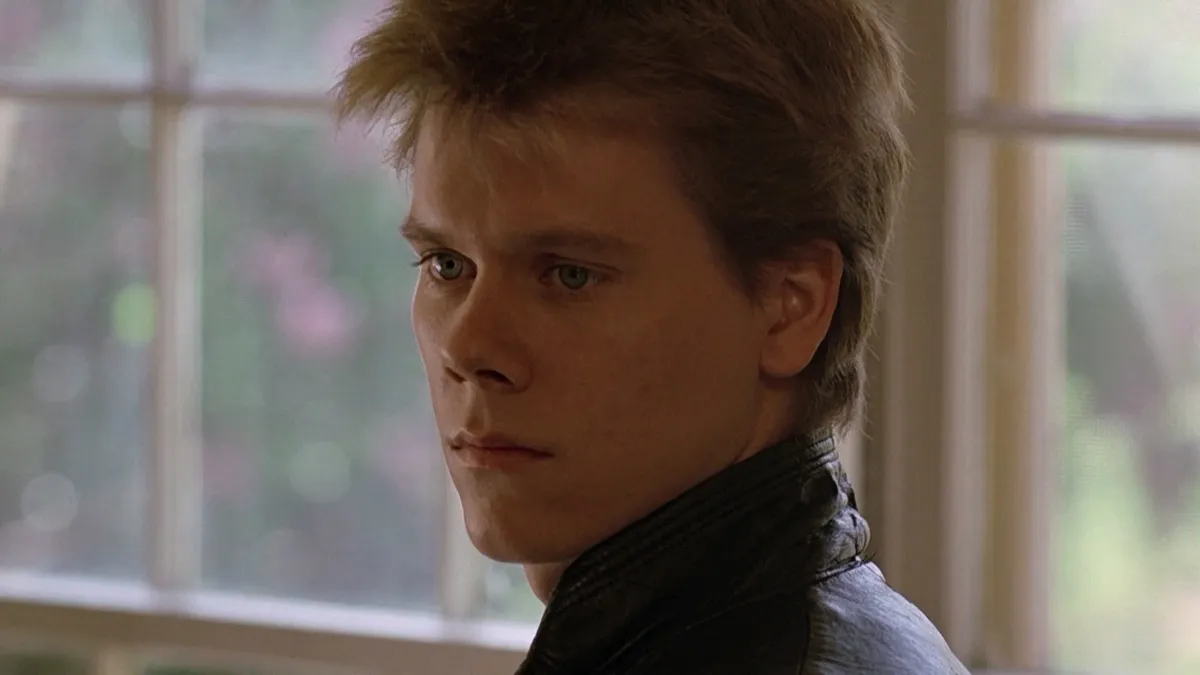
In February 1984, Footloose hit theaters, telling the story of a city kid (played by Kevin Bacon) who moves to a very conservative town where rock music and dancing are prohibited. The movie was a hit, but its soundtrack was arguably even bigger—specifically the title track by ’80s soundtrack master Kenny Loggins, which hit number 1 on the Billboard Hot 100 chart.
15
John Hughes arrived.
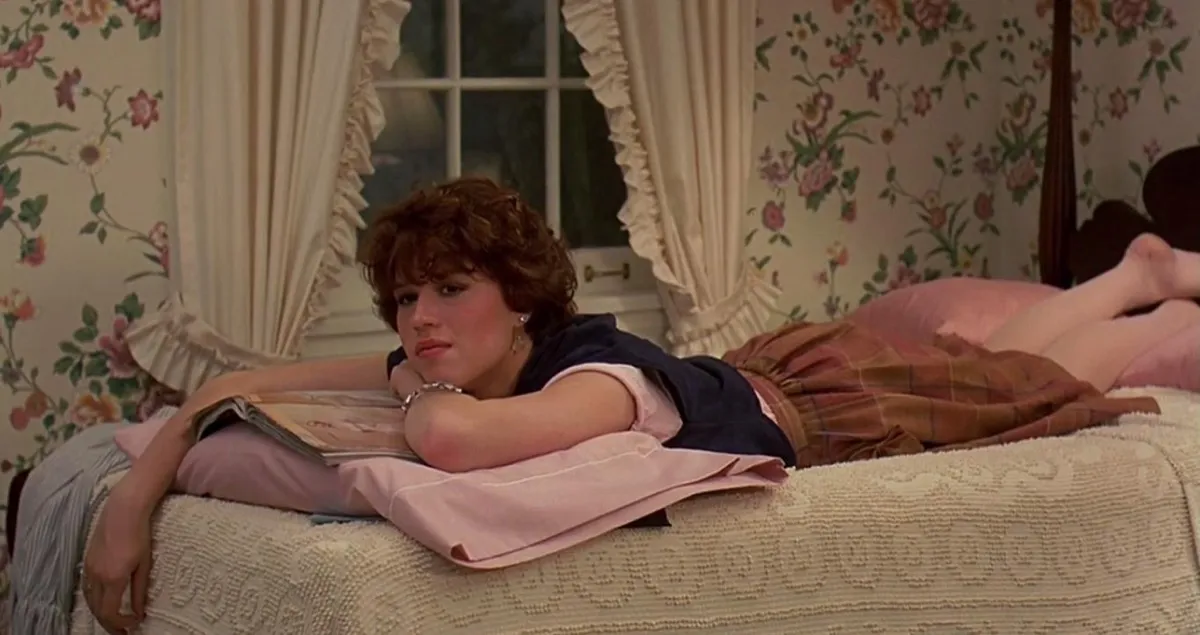
In May 1984, he opening of Sixteen Candles, the directorial debut of John Hughes, kicked off a string of era-defining movies from the filmmaker. With The Breakfast Club, Pretty in Pink, and Ferris Bueller’s Day Off on top of it, Hughes would introduce the world not only to the Brat Pack (Molly Ringwald, Judd Nelson, Ally Sheedy, Emilio Estevez, Anthony Michael Hall, and Andrew McCarthy), but also to a vision of high school as a privileged but dangerous playground. And who could forget the fashion choices and great soundtracks, to boot?
16
Alex Trebek gave his first answer.
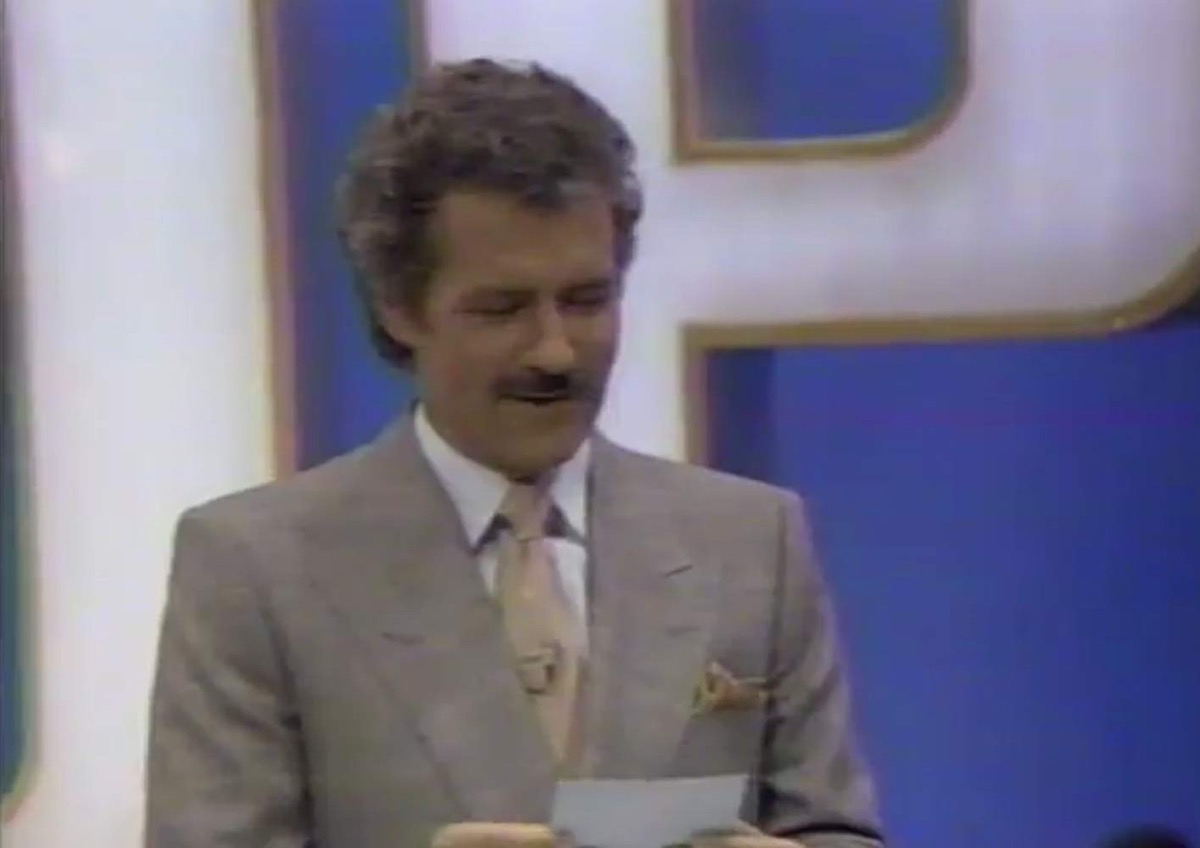
Jeopardy! had been kicking around network TV since 1964, but the Alex Trebek iteration proved the most popular and enduring… by far. It was in 1984 that Trebek first moved behind the podium, beginning a record-breaking run as a game show host, which he continues to extend to this day—more than 8,000 episodes and counting!
17
Astronauts made the first untethered space walk.
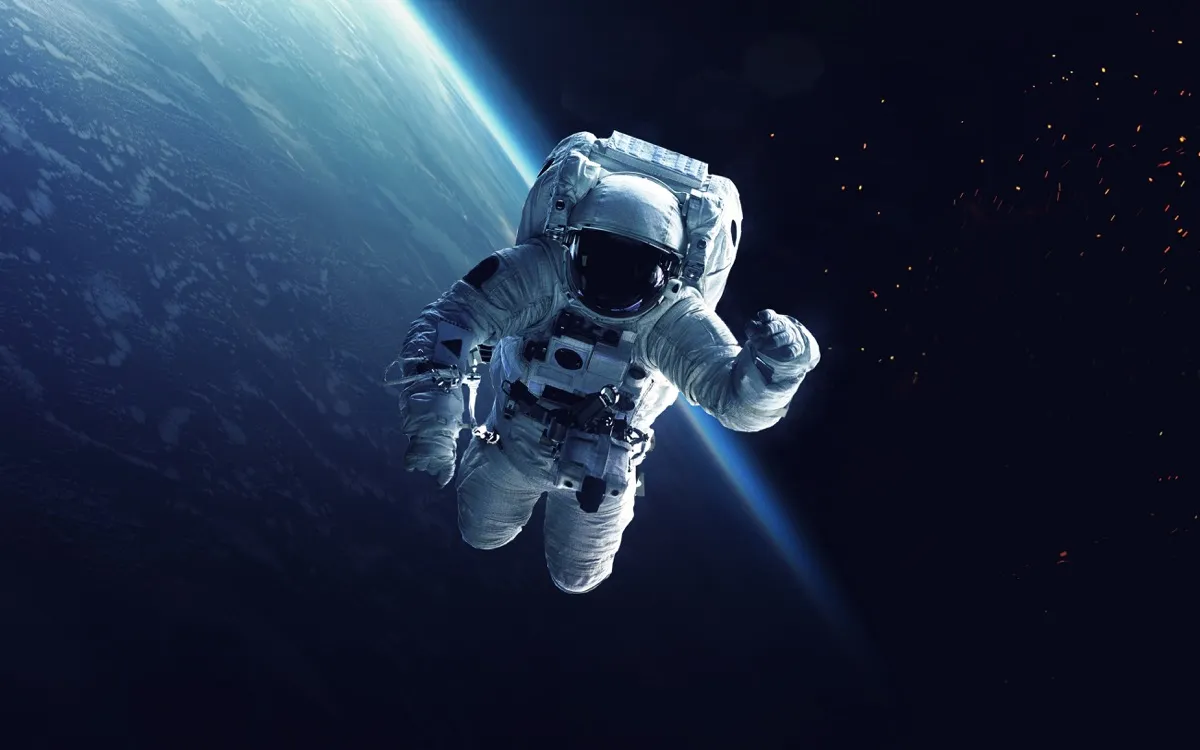
Though it was a year earlier that the world first saw Jackson’s Moonwalk dance on TV, 1984 had its own important interstellar stroll. During an eight-day mission on the Challenger in February 1984, the astronauts on board attempted the first space walk “free of any lifeline and propelled into the dark void by tiny jets,” as The New York Times reported, becoming, “in effect, the first human satellites.”
18
The space shuttle Discovery had its maiden flight.
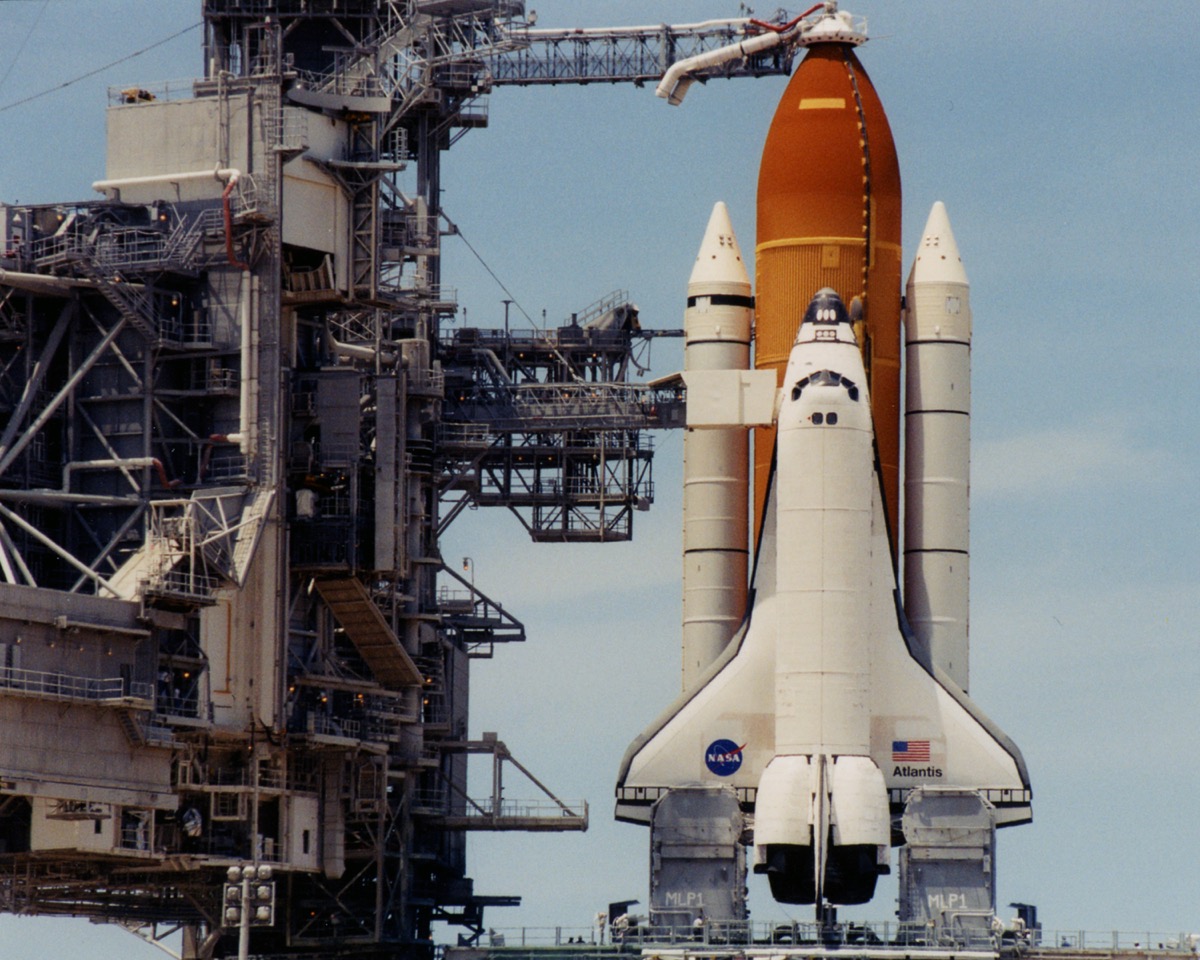
Speaking of space travel, 1984 was also the year that saw the third of NASA’s shuttles, Discovery, launch. Taking off from Kennedy Space Center in Orlando, Florida, Discovery would become the longest-serving orbiter, eventually flying 39 times between 1984 and 2011.
19
The first solo transatlantic balloon flight was completed.
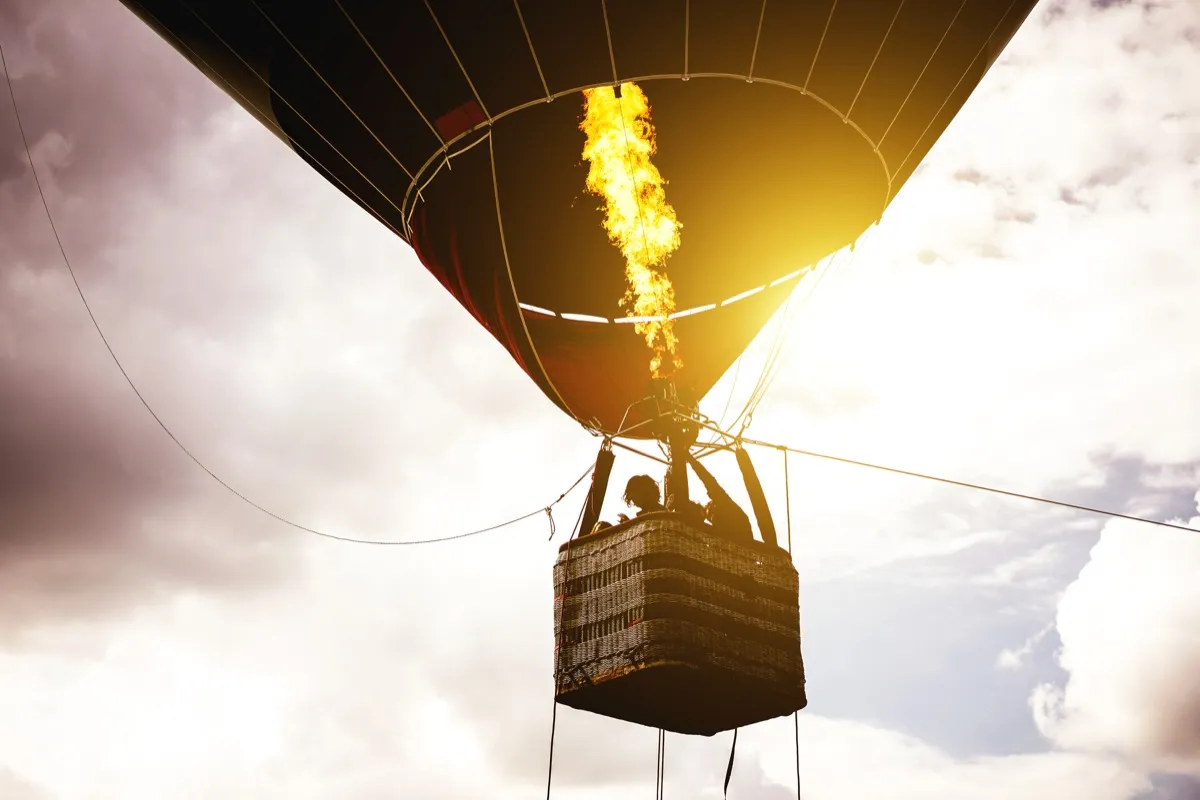
Retired U.S. Air Force Colonel Joseph Kittinger traded in his combat plane for a hot-air balloon, and, in September 1984, he set out to be the first person to cross the Atlantic Ocean solo in the unique mode of transportation. He lifted off from Caribou, Maine (the northeastern-most point of the U.S.) aboard Rosie O’Grady’s Balloon of Peace. Eighty-six hours and nearly 3,600 miles later, he touched down in Montenotte, Italy, solidifying his place in history books.
20
Everyone called Ghostbusters.
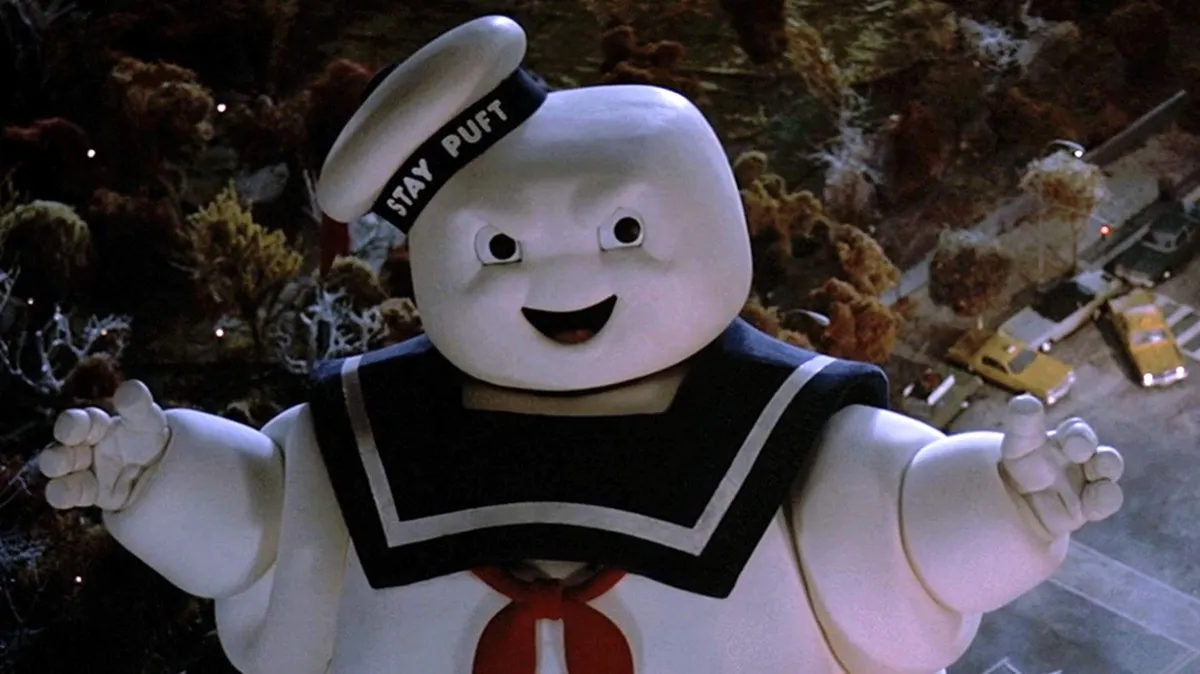
A silly movie about a rag-tag team of ghoul hunters probably didn’t sound like box-office gold before Ghostbusters hit theaters. But the Ivan Reitman-directed fantasy comedy became an instant smash, with its proton packs, ectoplasm-spewing spirits, and a skyscraper-tall Stay Puft Marshmallow Man. The film, which opened in June 1984, would go on to gross more than half a billion dollars and showed how unstoppable a good comedy could be.
21
Eddie Murphy became the biggest movie star in the world.
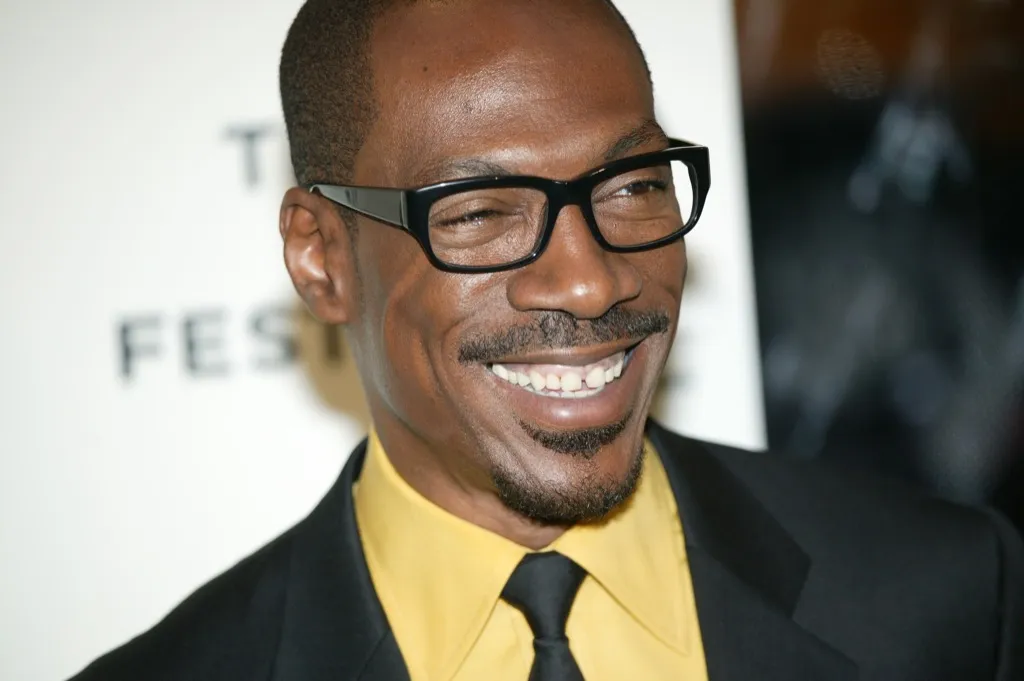
While Ghostbusters turned its lead actors (Bill Murray and Dan Aykroyd) into superstars, it was another Saturday Night Live alum who hit even bigger in 1984. Eddie Murphy was already a household name—thanks to the success of movies like 48 Hrs. and Trading Places—but his turn as Axel Foley in Beverly Hills Cop, his first solo lead role, would shoot him into the stratosphere. The film became the top-grosser of the year and Murphy became a legend.
22
Satanic panic set in!
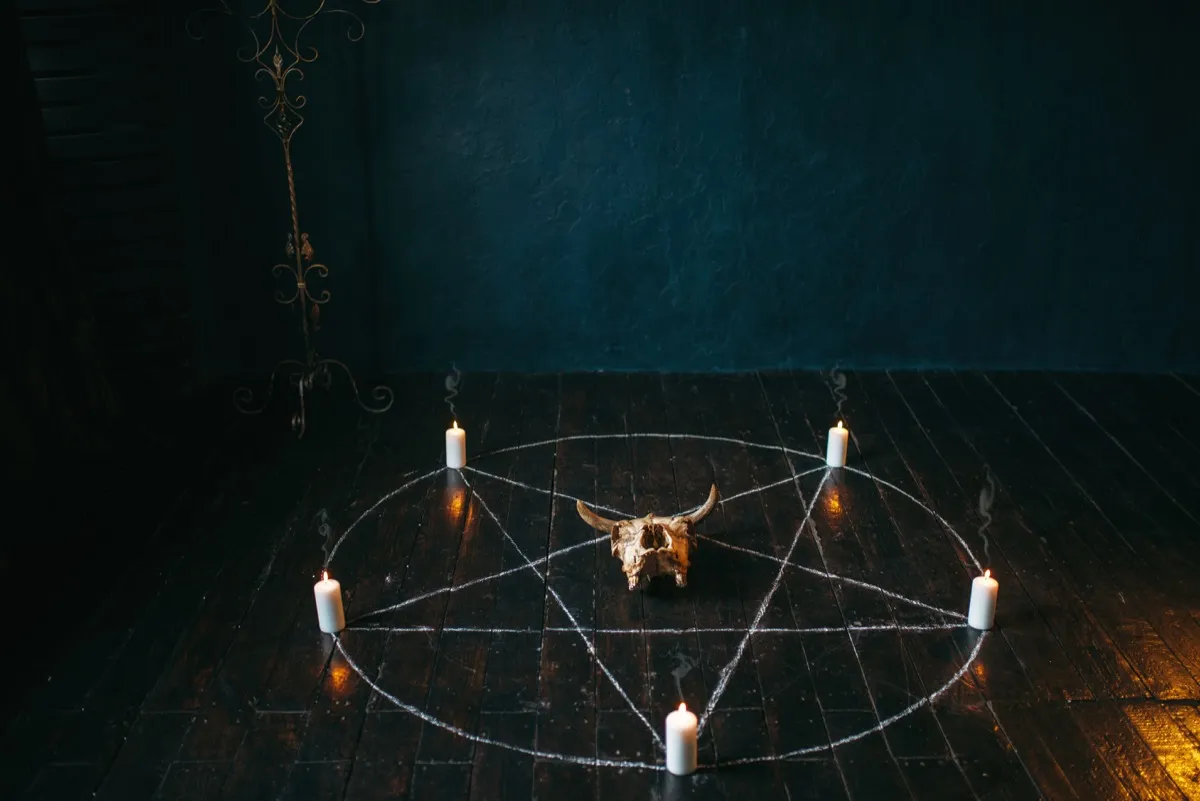
If you think the news is crazy today, imagine cracking open the newspaper in 1984 to read that several preschool teachers were engaged in ritualistic satanic child abuse, which allegedly included everything from flying in the air to drilling holes in kids. These were among the accusations that came up during the trial of several teachers at the McMartin Preschool in Manhattan Beach, California, and their associates. No convictions were made, and all charges were eventually dropped—but only after a six-year trial and numerous other, similarly sensational allegations exposed the whole “Satanic Panic” as little more than collective hysteria with no basis in reality.
23
U.K. miners went on strike for a year.
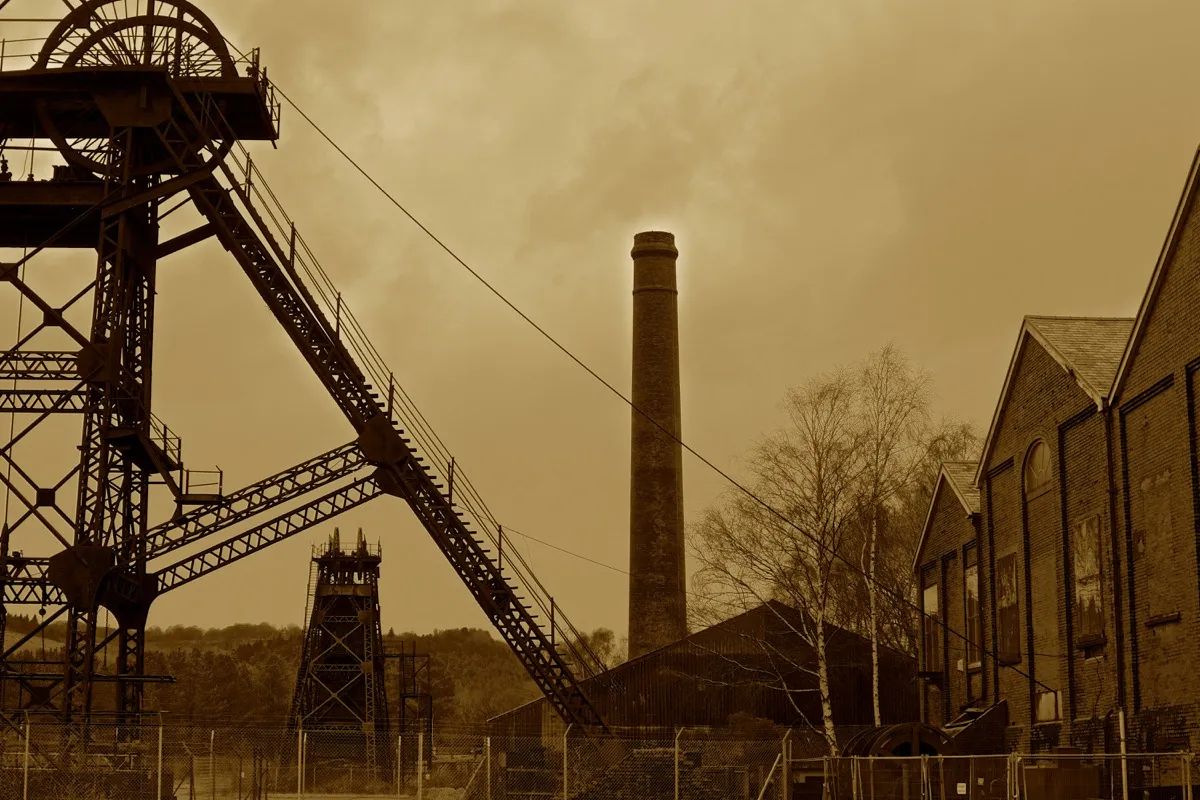
March 1984 saw the simmering tensions between the United Kingdom’s National Mineworkers Union and the British government’s National Coal Board (under the direction of British Prime Minister Margaret Thatcher) boil over. The Board’s plan to close 20 mine pits and eliminate some 20,000 jobs led to more than 150,000 miners going on strike, causing England’s mining industry to come to a standstill. The strike, which lasted until March 1985, became one of the longest-running trade disputes ever and a defining moment in British industrial relations.
24
Hong Kong returned to China.

In the waning days of 1984, Thatcher and Chinese Premier Zhao Ziyang signed the Sino-British Joint Declaration, agreeing to return Hong Kong (a British colony since 1842) to China, in 1997. The agreement set out a dual-system policy in which Hong Kong would become a special administrative region of China while maintaining a capitalist system. The parties involved stuck to the agreement and, at midnight, on July 1, 1997, Hong Kong became part of China.
25
The very first MTV Video Music Awards aired.
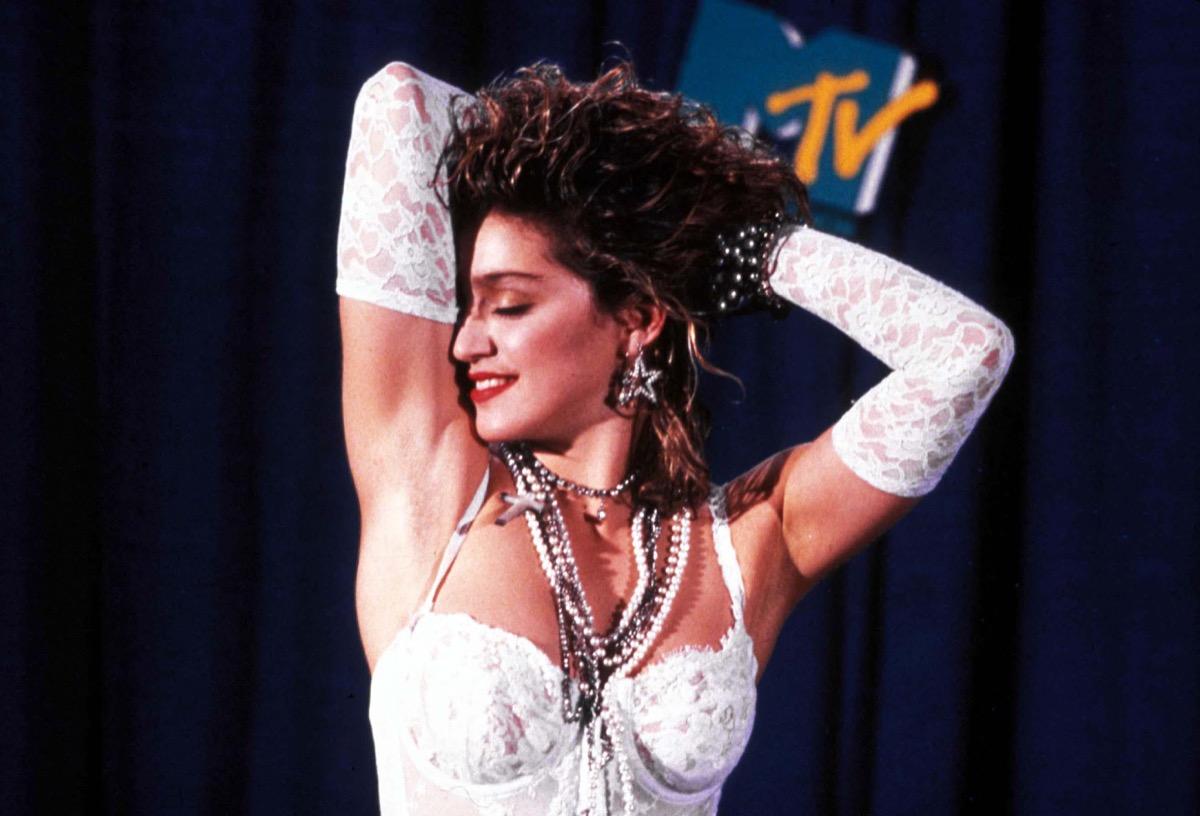
MTV held its first Video Music Awards on September 14, 1984 at Radio City Music Hall. It featured Madonna’s iconic “Like a Virgin” performance, in which she emerged from a 17-foot wedding cake. And the award for Video of the Year went to The Cars’ “You Might Think”—which beat out Jackson’s “Thriller” for the win.
26
Miss America lost her crown.
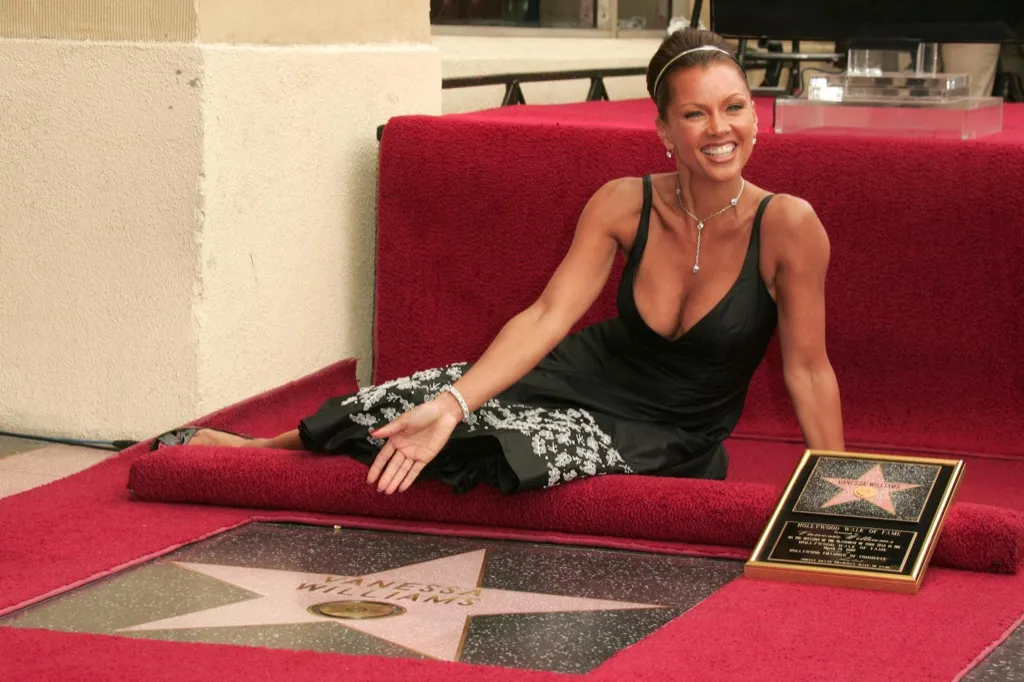
Miss America has lost much of its cultural cache in recent years, but the beauty competition used to be a huge deal. And one of its biggest moments came in July 1984 when Miss America winner Vanessa Williams—the first African-American winner in the history of the pageant—was stripped of her crown when nude photos she’d posed for previously were published in Penthouse. She’d never authorized the photos, and the Miss America organization’s CEO has since apologized for the decision, but Williams would have the last laugh: The wave of publicity around the scandal only raised her celebrity and helped launch her into a successful acting and singing career.
27
The “Beauty Queen Killer” terrified Americans.
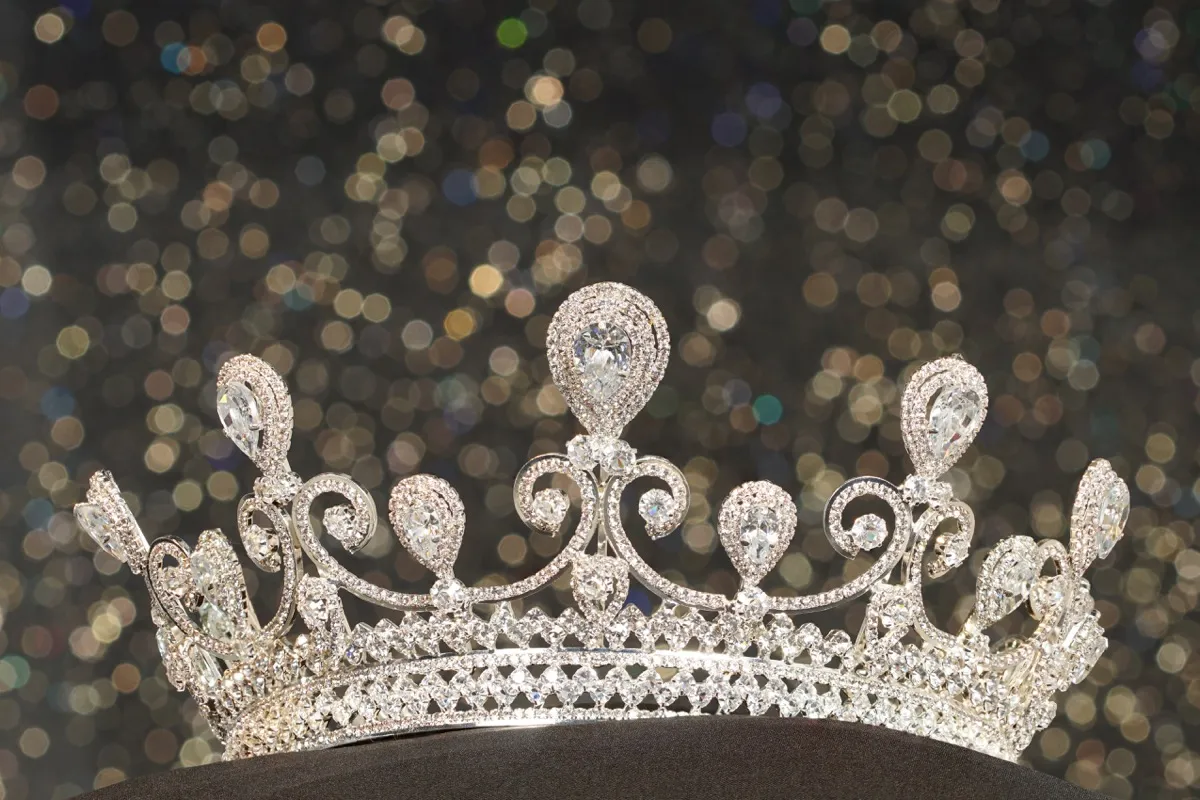
A series of abductions, rapes, and grisly murders throughout the United States over a six-week period in early 1984 shocked the nation. Australian Christopher Wilder drove from state to state, luring young women to his car with promises of modeling work before assaulting and, in at least eight cases, killing his victims. He earned the name “Beauty Queen Killer” because of the attractiveness of his victims and authorities finally caught up with him at a service station in New Hampshire, where he traded bullets with state troopers and was killed in the confrontation.
28
The deadliest mass shooting (at the time) happened at a McDonald’s.
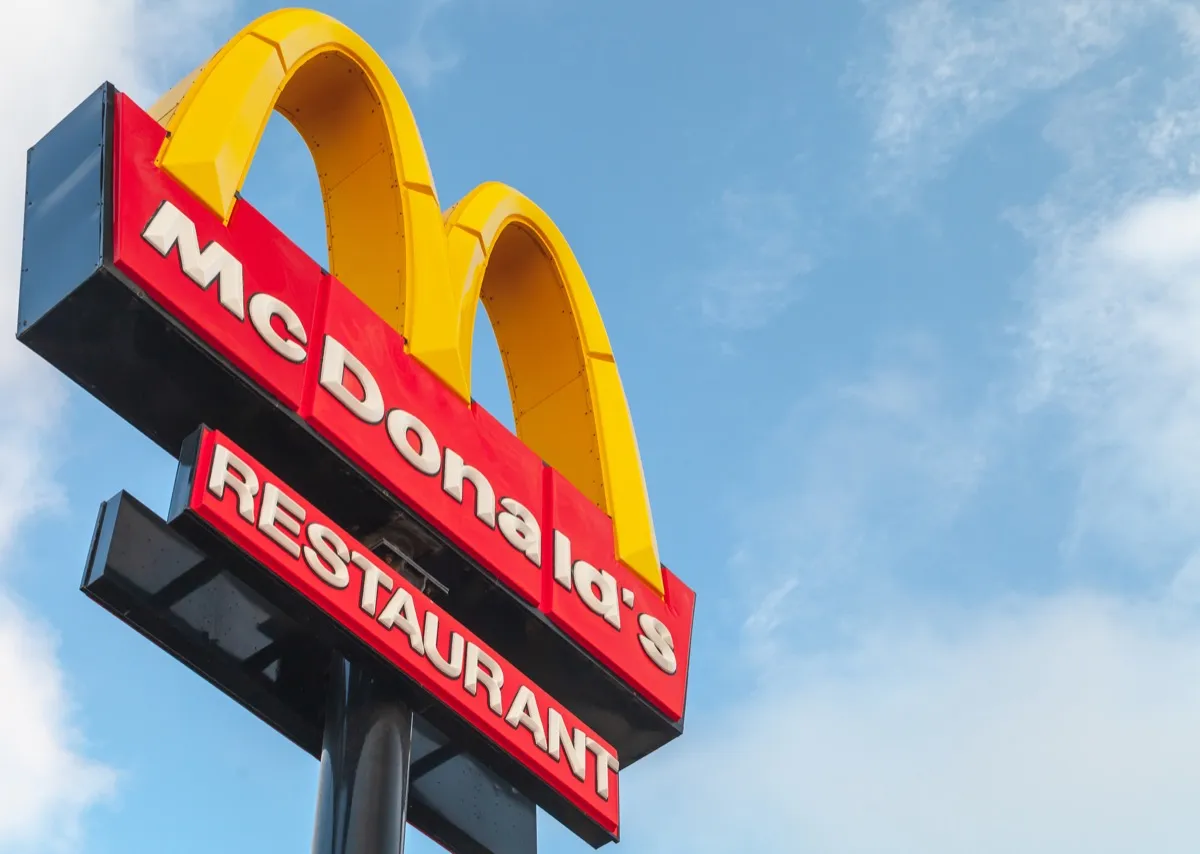
On July 15, 1984, 41-year-old James Huberty walked into a McDonald’s restaurant in San Ysidro, California, and opened fire on the customers. He killed 21 people and wounded 19 before being killed by the police. It was the deadliest mass shooting ever committed in the United States at the time. (Currently, it’s the seventh.)
29
A CIA chief was kidnapped in Beirut.
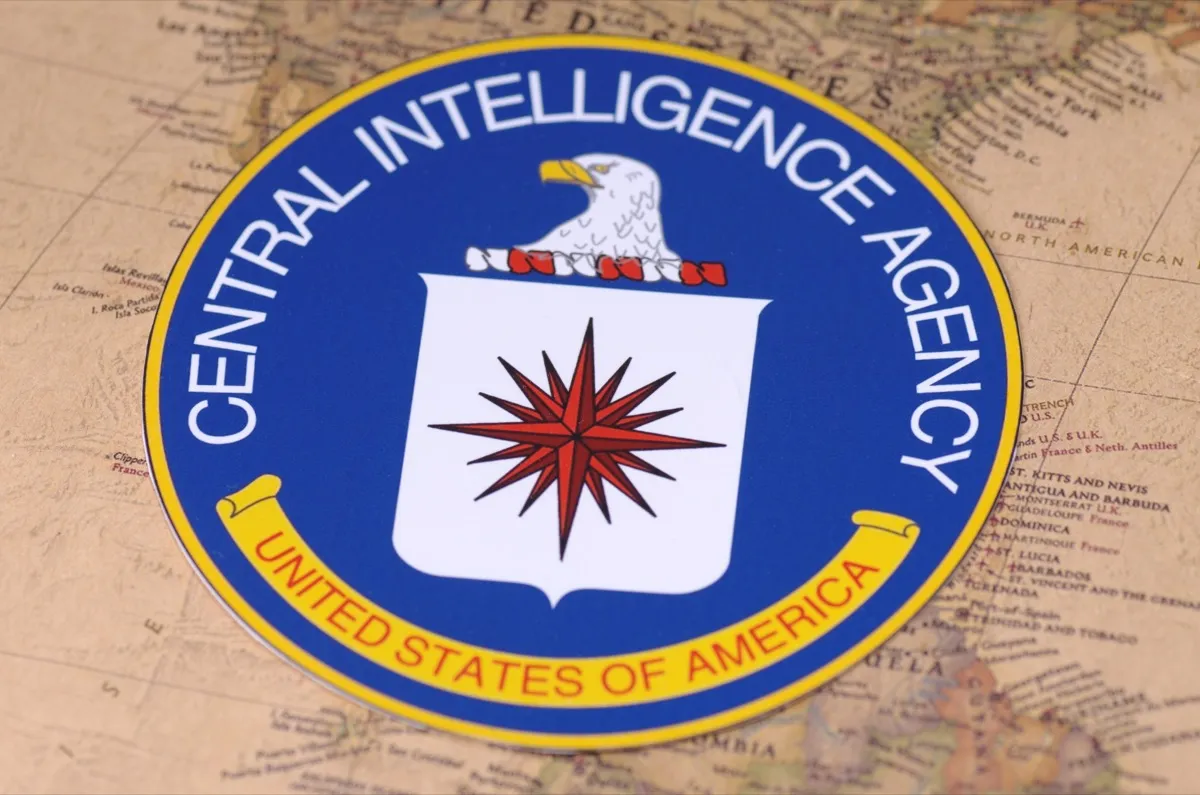
On March 16, 1984, William Francis Buckley, the CIA station chief at the U.S. embassy in Beirut, Lebanon, was kidnapped outside his residence. His jihadi kidnappers offered to use him as a negotiating device in a prisoner exchange, but he was instead transported to Iran where he was allegedly drugged and tortured for more than a year, before eventually dying of his injuries. His remains were returned to the United States in 1991.
30
The Subway Vigilante sparked national debate.
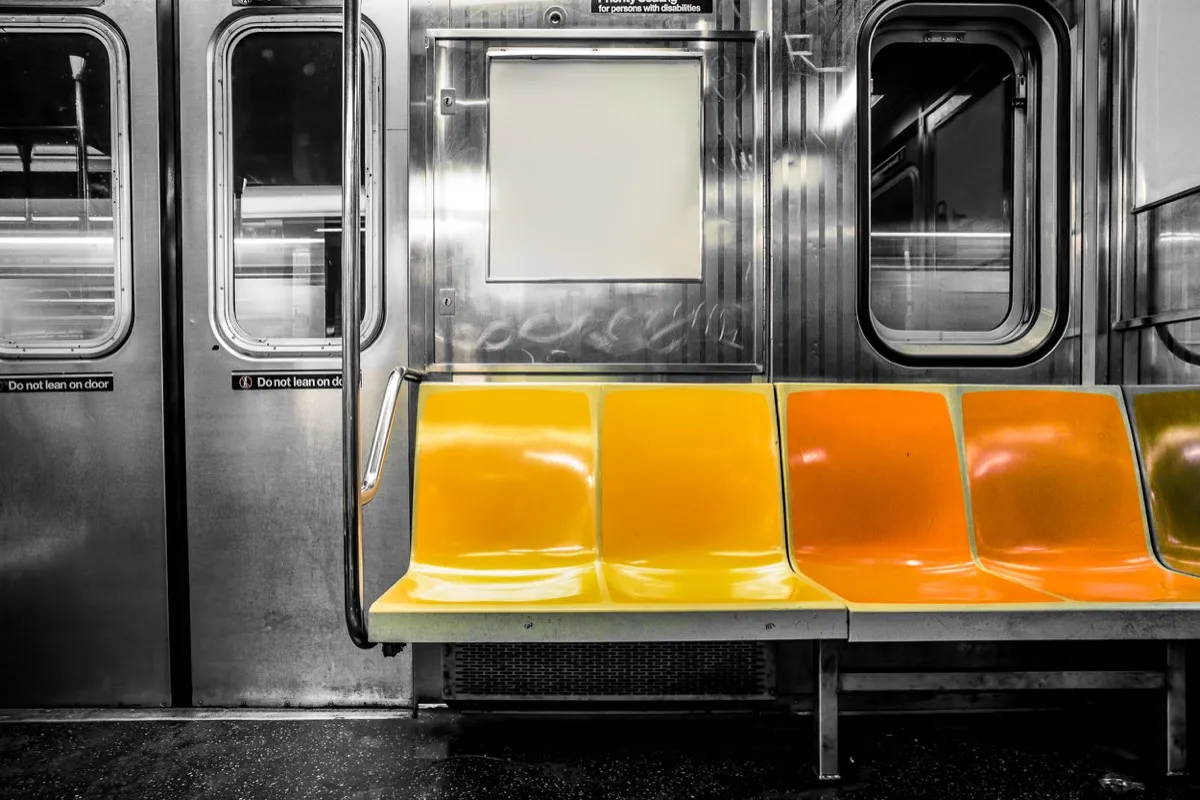
On an express train rolling through Manhattan, four African-American youths approached Queens native Bernhard Goetz, who pulled out a handgun and shot them, wounding all four. He claimed they attempted to rob him; they claimed they’d just been panhandling and asking for change.
It sparked a national debate about race and crime. Some viewed Goetz as a hero; some believed the four men’s version of events; and still others believed the men had indeed been attempting a robbery, but felt like Goetz overreacted. No matter how you felt about it, there was no escaping the incident, which remained on the front page of New York City papers for months.
31
Indira Gandhi was assassinated.
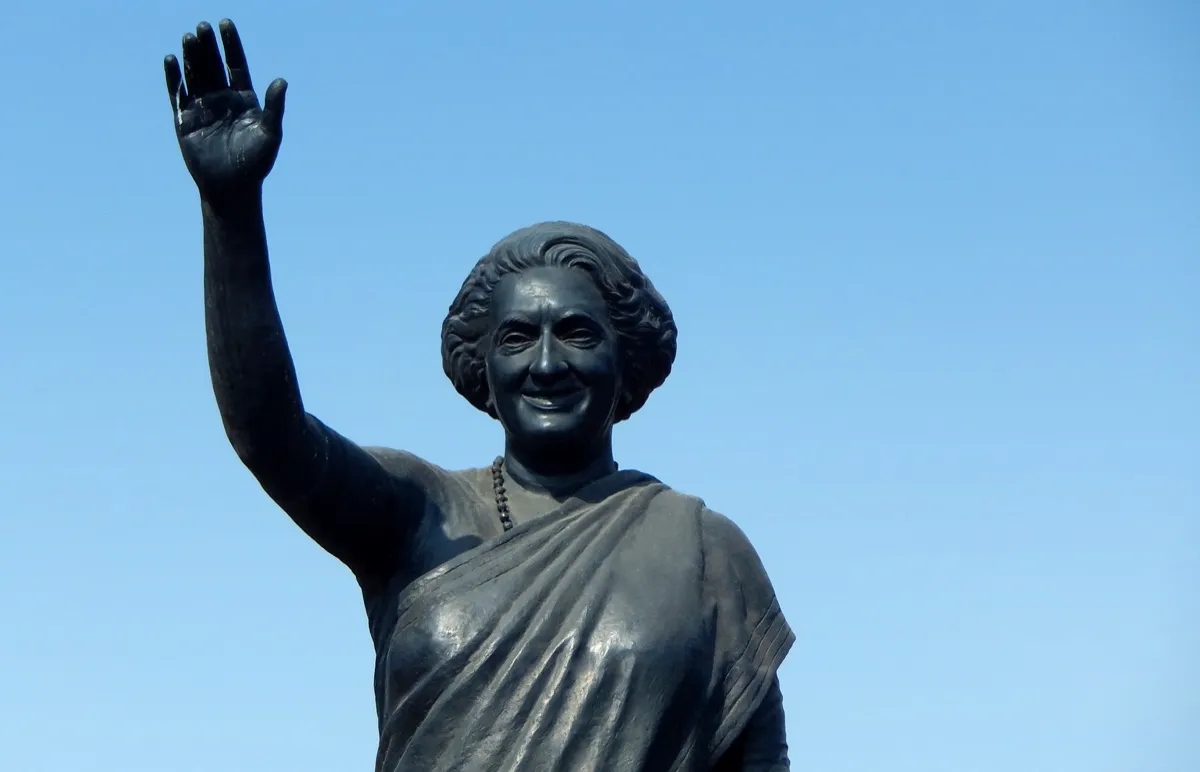
Indira Gandhi—the second-longest-serving prime minister of India, and the daughter of the country’s first prime minster—saw highs and lows since ascending to the role in 1966. First, she scored a major victory over Pakistan, in 1971. Then, she was ousted, in 1977. But, in 1980, she rose back to popularity, and became prime minster again. Still, she struggled to navigate the country’s intense divisions, which came to a head when she ordered an army raid on a Sikh temple as a strike against Sikh extremists. A pair of her bodyguards, both Sikh, put their religion first and, on October 31st, assassinated Gandhi.
32
“Do They Know It’s Christmas?” sparked awareness about childhood hunger in Ethiopia.
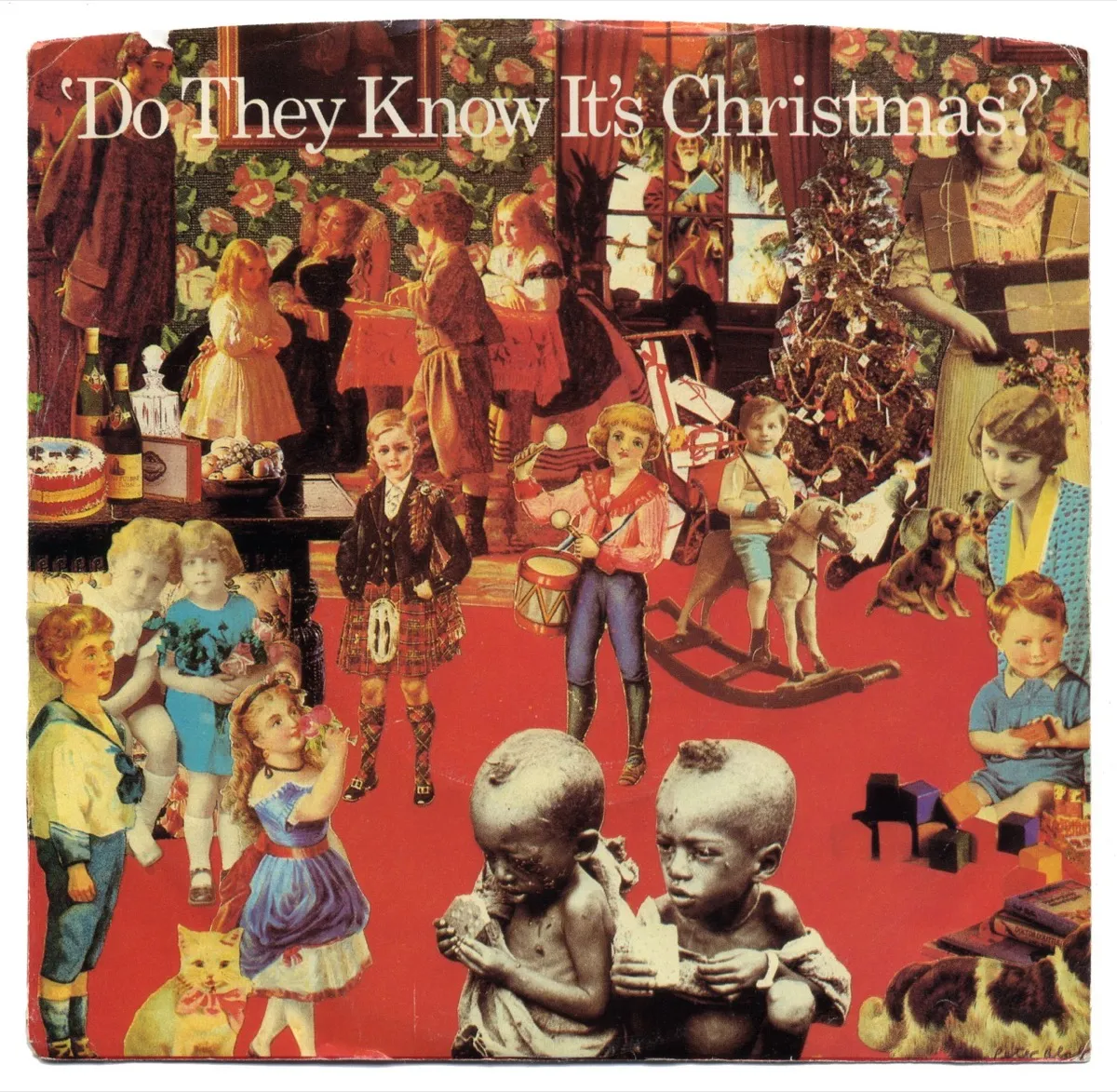
Startled by images of famine in Ethiopia that he saw on BBC, musician Bob Geldof and friend/fellow musician and producer Midge Ure decided in early November 1984 that they’d write, produce, and release a benefit song in time for Christmas—and recruit a few dozen of their famous U.K. musician friends to contribute vocals. They managed to pull it off, getting singers and musicians like Phil Collins, Bono, Boy George, and George Michael, to name a few, to record the catchy, “Do They Know It’s Christmas?” The song was a massive hit, selling a million copies its first week, and 3 million by the end of 1984. It remains a fixture of pop radio during the holidays (helped in no small part by periodic reworked/updated versions).
32
Marvin Gaye was killed.
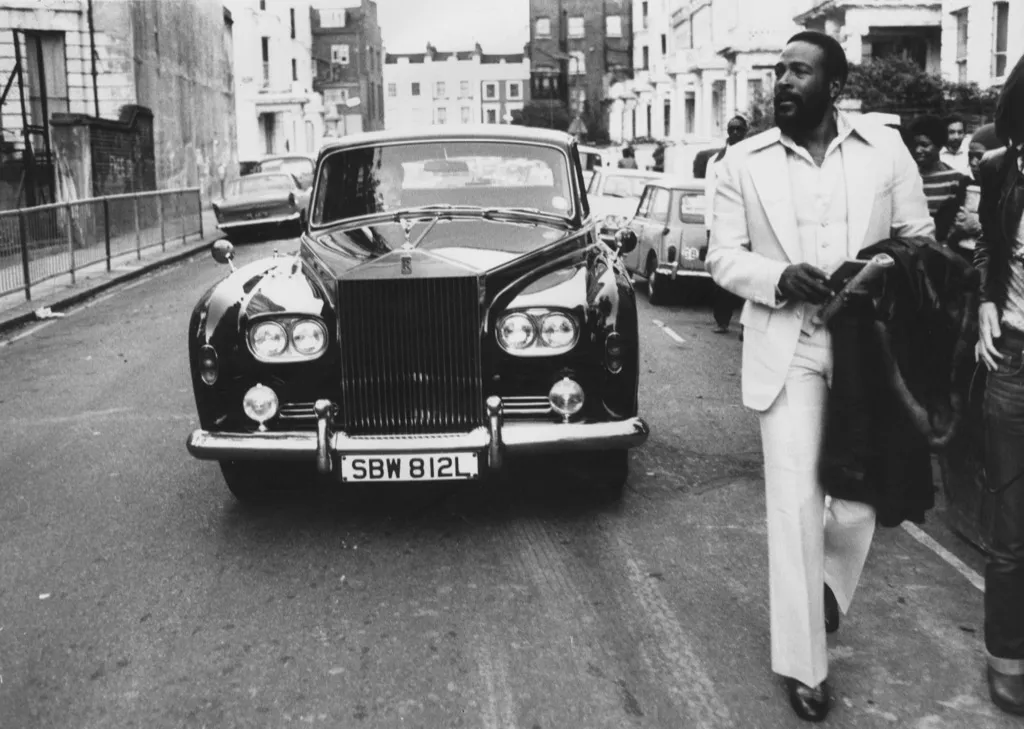
The music world lost a giant on April 1, 1984, when Marvin Gaye intervened in a fight between his parents, angering his father, who shot him at point-blank range. He died minutes later, just one day short of his 45th birthday. And for another look at the decade that was, check out the 30 Facts That Will Overwhelm You with 1980s Nostalgia.
To discover more amazing secrets about living your best life, click here to follow us on Instagram!